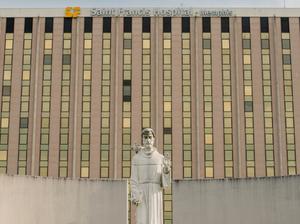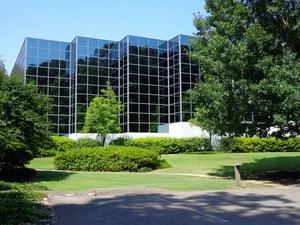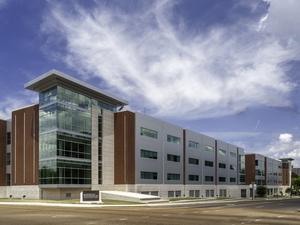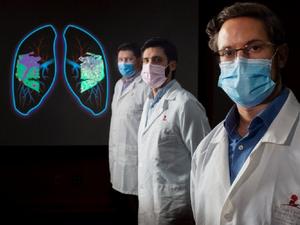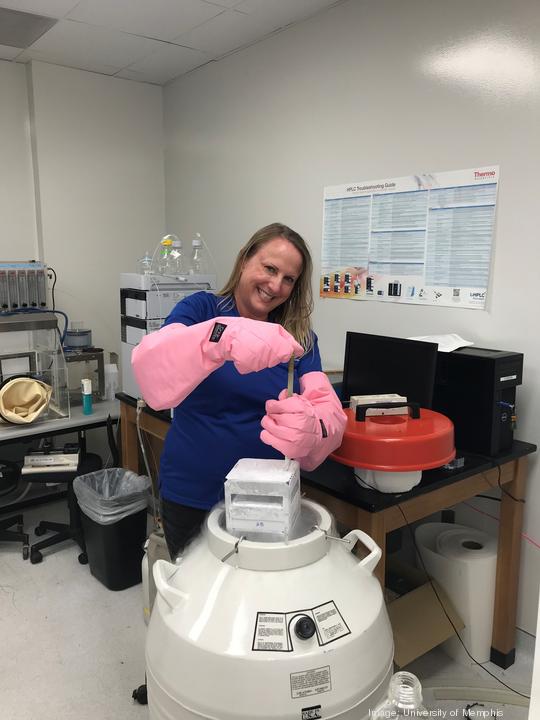
Amber Jennings’ lab engineers innovation.
Jennings, Ph.D., an assistant professor at the University of Memphis, runs a research lab with multiple national funding awards at the U of M’s Department of Biomedical Engineering in the Herff College of Engineering.
Her lab’s funding commitments in 2020 total more than $1.3 million.
This year, Jennings’ research on chitosan-based biomaterials has yielded two U.S. Department of Defense (DOD) awards related to healing technologies.
The first — a three-year, $499,315 award — focuses on covering a burn wound as well as preventing infection and delivering pain relief.
Chitosan is a natural polymer that can be processed to create a plastic-like material. When combined with a mesh membrane, a dressing material is created, but with biomedical features.
“Because it’s a natural material, it has many chemically feasible ways that we can attach those molecules and modify their surfaces so that they release drugs over a controlled timeframe,” Jennings said.
The DOD is interested in the burn wound dressing for prolonged field care — pain relief and preventing infection from setting in over the initial 24 to 72 hours.
A second DOD award — in collaboration with Mississippi State University — totals $268,115 and proposes using a chitosan-based membrane to prevent infection after bone and musculoskeletal trauma.
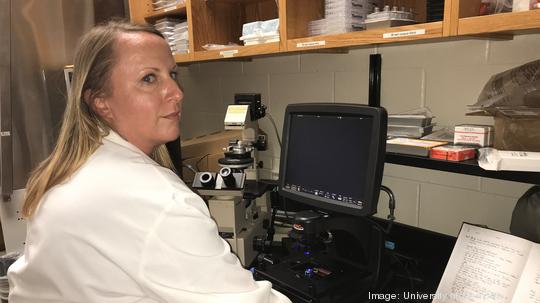
Also in 2020, Jennings received a five-year, $543,551 award from the National Science Foundation related to developing materials that have a synthetic biofilm-disrupting molecule on their surfaces.
Biofilms protect and attach bacteria to surfaces and can clog up and create contamination in places such as water pipes. Jennings’ work could lead to the use of engineered surfaces, such as metal, polymers, and ceramics, that are coated with the synthetic molecule and keep bacteria from accumulating. Applications from the research could impact the fields of health care, environmental and chemical engineering, and food preparation.
Jennings’ lab is in the final year of a five-year National Institutes of Health (NIH) R01 award focused on an injectable gel with antimicrobial features. Their delivery system could help treat hard to reach infections related to total joint replacement, for instance.
Jennings said discussions around her lab’s technologies have been had with industries interested in licensing the patented materials.
The U.S military also sees the benefit of science in the lab being translated into a viable product quickly.
“The DOD has a vested interest in making sure that these technologies move forward in the translational pipeline because they want them to be available for use in the military and civilian population as soon as possible,” Jennings said.
